Uncategorized
-
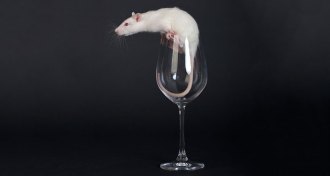 Genetics
GeneticsRats offer clues to biology of alcoholism
Heavy-drinking rats are giving scientists new genetic clues to alcoholism.
-
 Plants
PlantsInternal clock helps young sunflowers follow the sun
A circadian clock helps sunflowers follow the sun’s daily path across the sky
-
 Earth
EarthChina’s mythical ‘Great Flood’ possibly rooted in real disaster
Folktales of an ancient flood that helped kick off Chinese civilization may reference a nearly 4,000-year-old deluge.
By Bruce Bower -
 Health & Medicine
Health & MedicineZika vaccines work in rhesus monkeys
Three vaccines can protect rhesus monkeys from infection with Zika. One of them fended off viral strains from both Brazil and Puerto Rico.
By Meghan Rosen -
 Planetary Science
Planetary ScienceCeres is more than just a space rock
Dawn spacecraft reveals that the dwarf planet Ceres hides a core of solid rock beneath an outer crust of minerals, salts and ices.
-
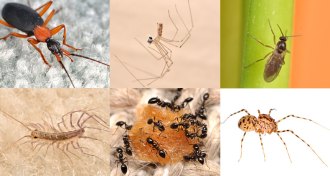 Animals
AnimalsDiversity of indoor insects, spiders adds to life’s luxuries in high-income neighborhoods
A massive survey of indoor spiders and insects in town finds dozens of different scientific families in homes, more in high-income neighborhoods.
By Susan Milius -
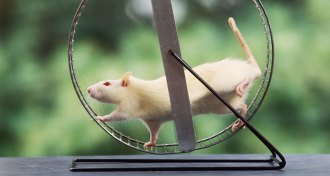 Neuroscience
NeuroscienceRunning doesn’t make rats forgetful
Running doesn’t seem to wipe out old memories in rats, concludes a new study that contradicts earlier reports suggesting that exercise does actually help old memories fade and new memories form — in other rodents.
By Meghan Rosen -
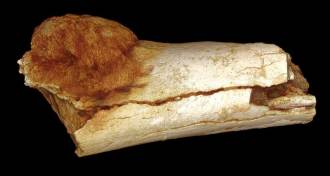 Anthropology
AnthropologyOldest evidence of cancer in human family tree found
Bony growths on fossils may push origins of this disease way back in the Stone Age.
By Bruce Bower -
 Paleontology
PaleontologyWoolly mammoths’ last request: Got water?
Woolly mammoths survived on an Alaskan island thousands of years after mainland mammoths went extinct. But they died out when their lakes dried up, thanks to a warming climate and rising sea levels.
-
 Health & Medicine
Health & MedicineMosquitoes in Florida now spreading Zika virus, health officials warn
Florida adds 10 new cases of locally acquired Zika infection, prompting the CDC to issue travel warning for pregnant women. Mosquitoes in Miami may be resistant to insecticides.
By Meghan Rosen -
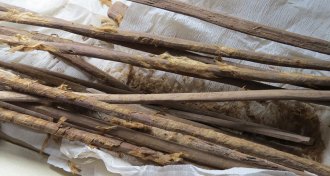 Archaeology
ArchaeologyParasitic worm eggs found on Silk Road latrine artifacts
Microscopic study of latrine finds indicates disease spread along ancient Asian trade route.
By Bruce Bower -
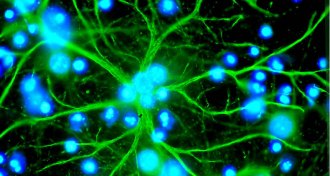 Neuroscience
NeuroscienceGift-giving brain cells are lifeline to injured nerve cells
After an injury, astrocytes give nerve cells a gift of mitochondria, mouse study suggests.